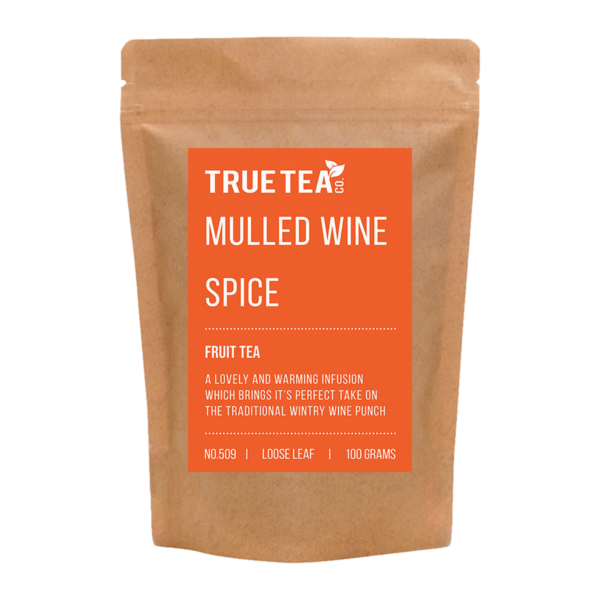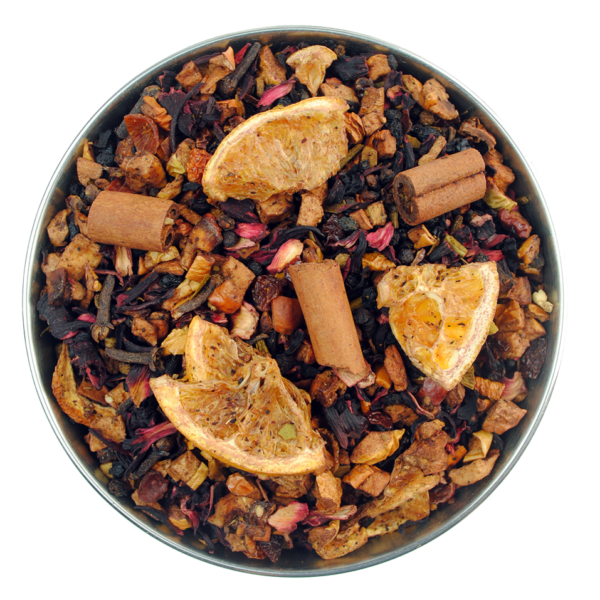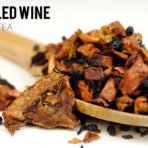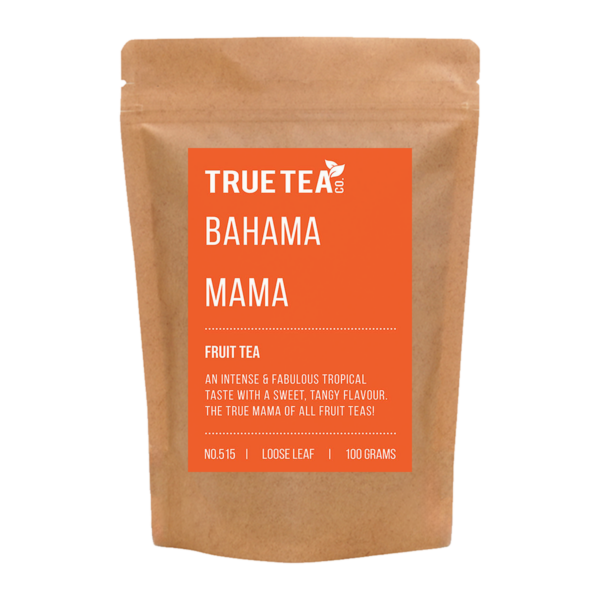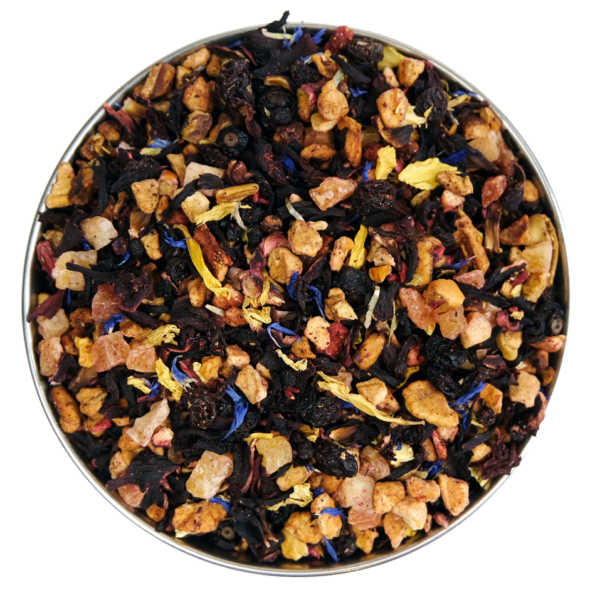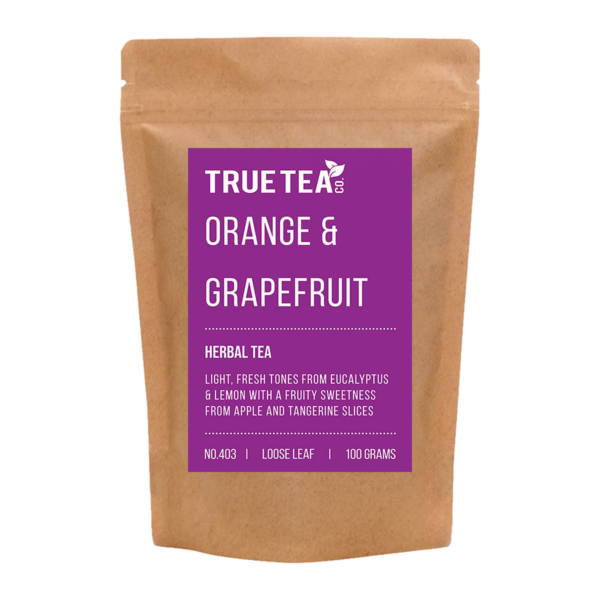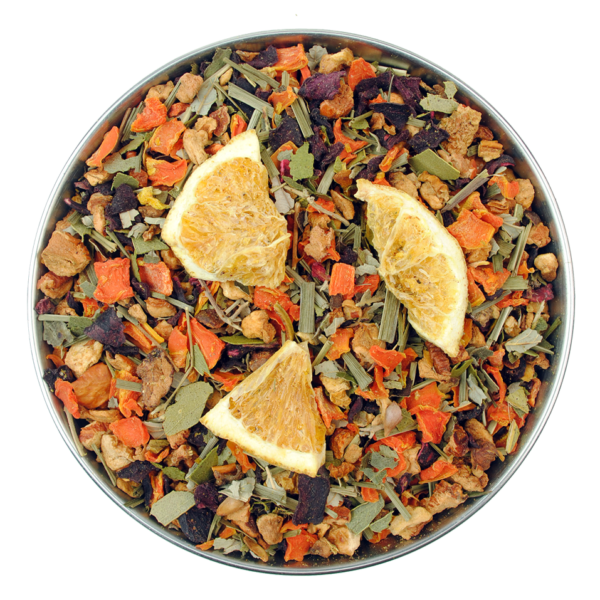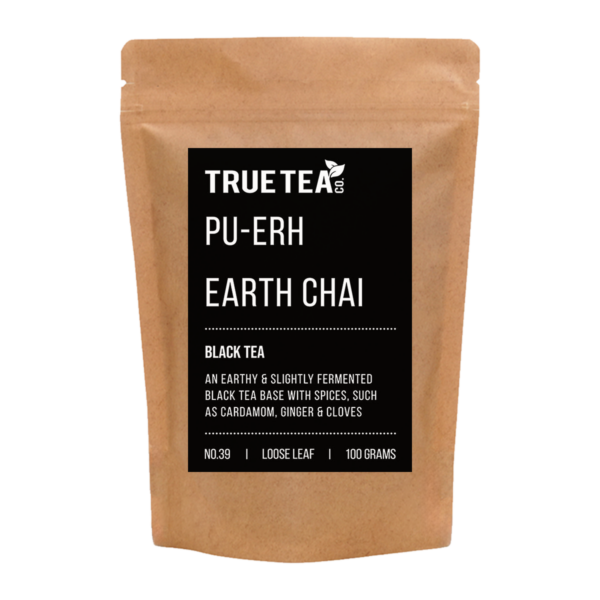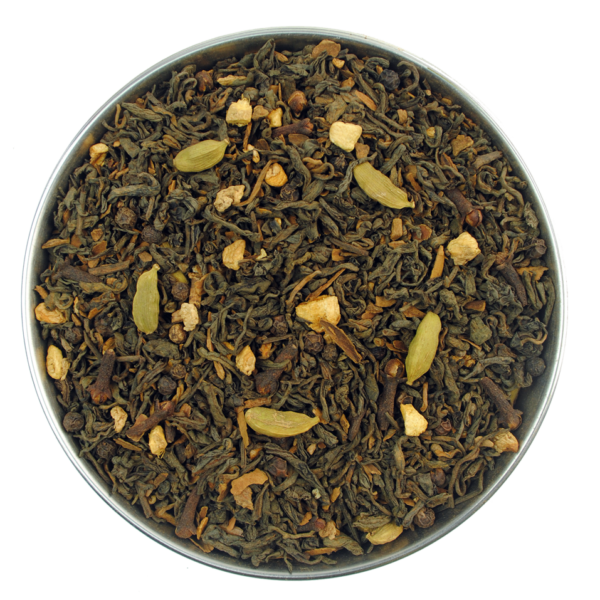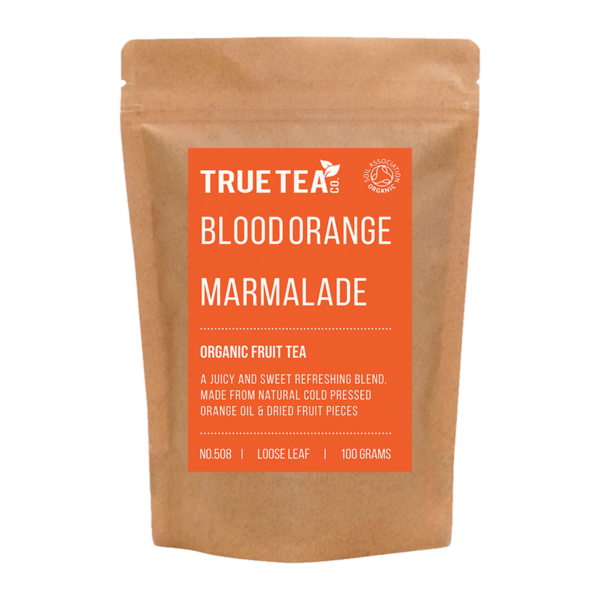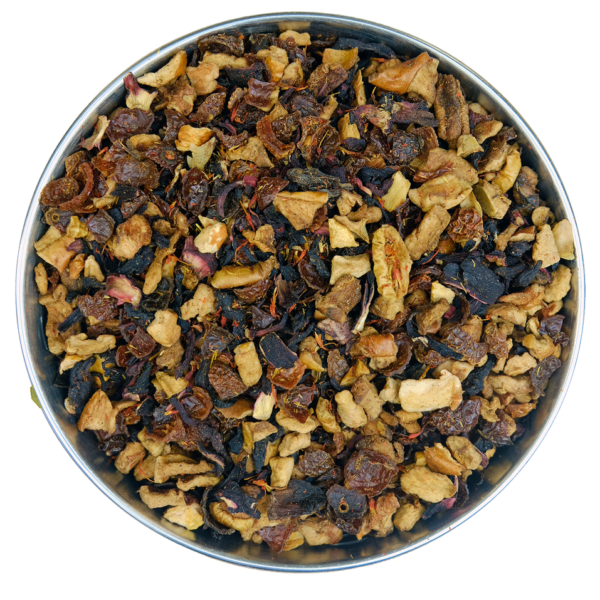Mulled Wine Spice Fruit Tea (No.509)
A caffeine-free, fruit-based blend capturing the rich, aromatic flavours of traditional mulled wine.
Our Mulled Wine Fruit Tea brings the flavors of traditional mulled wine into a caffeine-free, fruit-based blend.
Inspired by the classic holiday drink, this tea combines apple pieces, hibiscus blossoms, elderberries, rose hip peel, mistletoe, cinnamon rods, cloves, and orange slices to create a rich and aromatic brew.
The apple pieces provide a sweet and fruity base, while hibiscus adds a tangy twist and elderberries lend a deep, tart flavour.
Rose hip peel enhances the smoothness, and the cinnamon and cloves bring that signature warmth associated with mulled wine.
The addition of mistletoe offers a unique herbal note, while orange slices brighten the blend with a citrusy zing.
If you enjoy the warm, festive flavours of this festive tea, you may also like Christmas Stollen Black Tea or Spiced Apple Fruit Tea.
How To Make Mulled Wine (With Our Fruit Tea)
To make a delicious mulled wine with our fruit tea, start by heating a bottle of your favourite red wine in a pot over medium heat.
Once the wine is warm (but not boiling), add 2-3 teaspoons of our fruit tea directly into the pot or place it in a tea infuser.
Stir in a couple of tablespoons of honey or sugar, depending on your desired sweetness, and continue to heat the mixture gently, allowing the flavors of the fruit, spices, and herbs to infuse into the wine for about 10-15 minutes.
You can also add a splash of brandy or orange liqueur for extra warmth and depth.
After the tea has steeped and the wine has absorbed the festive flavours, remove the infuser or strain the tea leaves.
Serve the mulled wine in mugs, garnished with a cinnamon stick, a slice of orange, or a few cloves for a truly aromatic drink.
History of Mulled Wine
Mulled wine has a long and rich history, dating back to ancient civilizations, with the earliest records found in the Roman Empire, where wine was heated and infused with spices like cinnamon, cloves, and honey for warmth and medicinal benefits.
In the medieval period, spiced wine became popular throughout Europe, particularly in colder months, as it was believed to aid digestion and promote warmth.
By the 16th century, it became a festive drink, often enjoyed during Christmas and winter celebrations.
In the Victorian era, it became a hallmark of holiday gatherings in England, with additions of fruits like oranges and lemons to enhance the sweetness and flavour.

